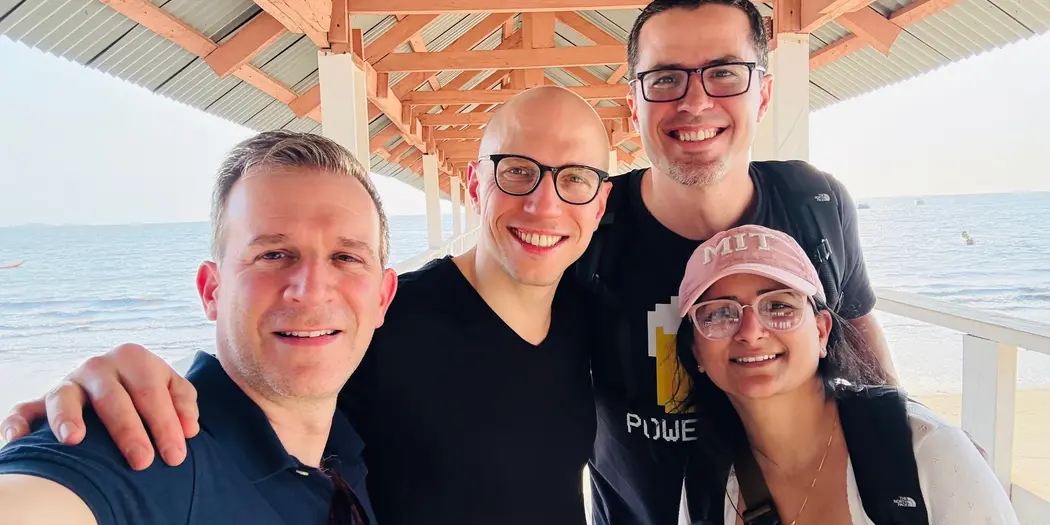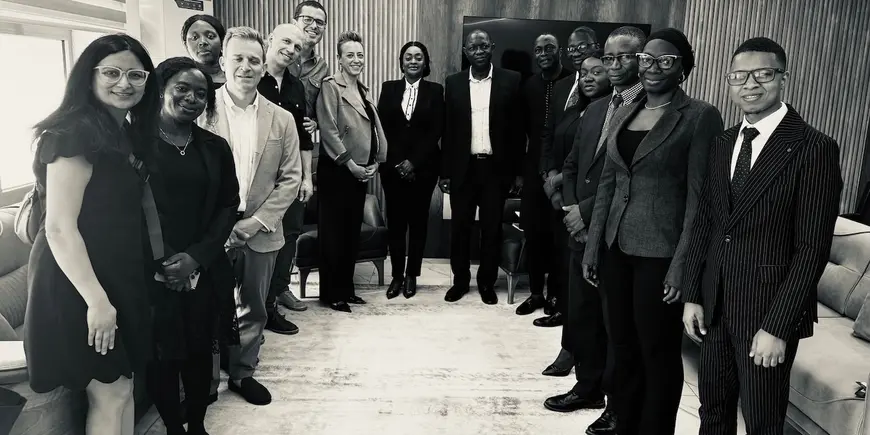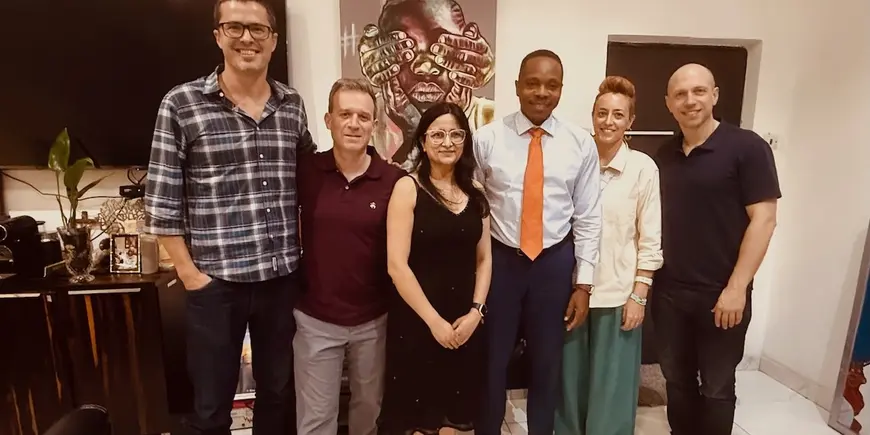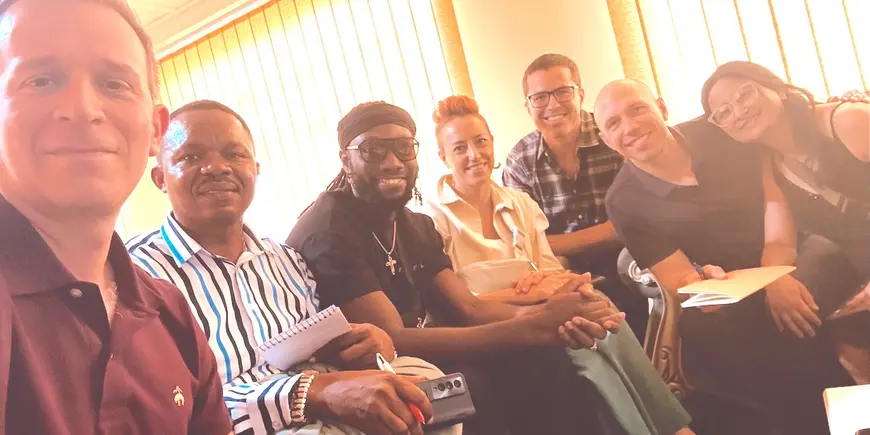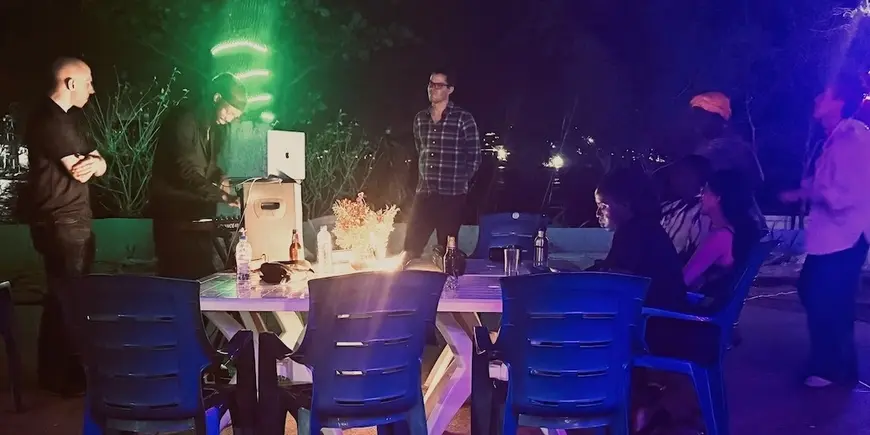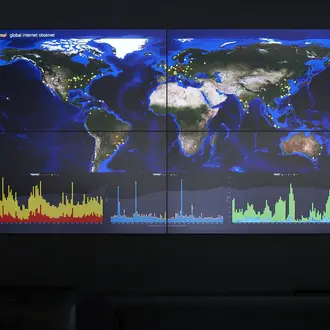“Telem” means “safe space” in Sierra Leone. The music collective Telem Uncommon Sounds is trying to create just that, nurturing a more open and experimental creative community in Freetown, Sierra Leone. Working with musicians, government, and other ecosystem stakeholders, Telem works to provide more viable opportunities for Sierra Leonean musicians to make, perform, and share experimental music that is still locally rooted; and to ensure more Sierra Leonean musicians are sharing this music in global music channels, performance stages, and culturally influential roles.
This may sound simple, but in a creative economy that lacks the basic institutional pillars of creativity, it is anything but.
With the help of Global Organizations Lab (GO-Lab) MIT Executive MBA students Ross Beyeler, EMBA ’25; Adam Cohen, EMBA ’25; Owen Dempsey, EMBA ’25; and Rama Kataria, EMBA ’25; that future is closer within reach.
“We helped a music company, made of musicians, but it wasn’t just about music,” says Cohen. “We were on a mission. A mission to identify a promising business focus to create a thriving national music sector, to create a thriving national creative sector, to create a thriving economy, to revitalize a country.”
Working with a living ecosystem
Prior to leaving for West Africa, the GO-Lab team worked together to prepare for their Action Learning project. To their surprise, much of what they brainstormed, hypothesized, and planned needed updating once they arrived in Freetown.
“We realized that you can’t know the place until you hit the ground,” says Cohen, noting that this was one of the biggest takeaways of his experience. “If GO-Lab was about managing across borders and accelerating your ability to lead in a complex world, it was also about learning to work with a living ecosystem—the formal and the informal, the planned and the improvised, the local and the global. It was about realizing that business frameworks are only a starting point.”
“While I defended the need to arrive with hypotheses, I also supported our team’s commitment to listen first,” adds Dempsey. “Our conversations in Sierra Leone were grounded in mutual respect, not assumptions, and I think that mindset allowed us to discover real insights.”
GO-Lab team and Telem in Sierra Leone
-
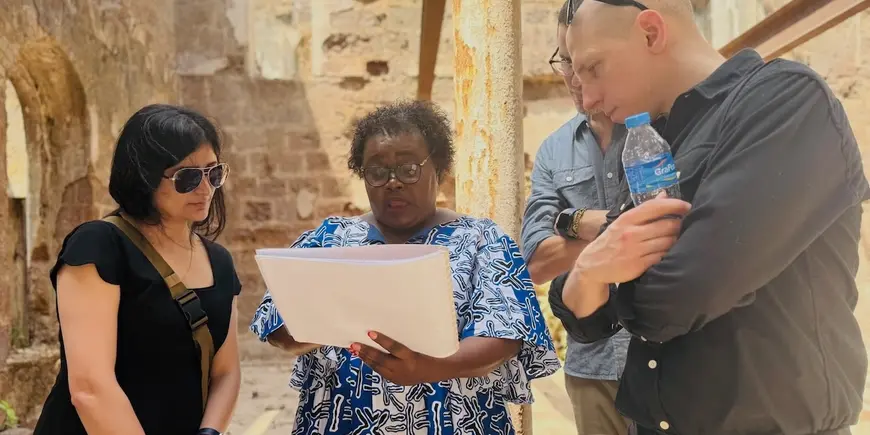
Meeting with West Africa Heritage Consultants MIT GO-Lab team meets with Isatu Smith, Managing Director, West Africa Heritage Consultants.
Listening to the music
Once the students listened to the music, met with local artists and leaders, and experienced the culture, they readjusted their approach and began to make progress, while still tapping into what they learned in the classroom.
For Beyeler, working with Telem felt like a real-world application of the Disciplined Entrepreneurship framework—a framework developed at MIT. “It wasn’t just an academic exercise,” he says. “We actively used the framework to shape our recommendations. And honestly, bits and pieces of everything we had learned surfaced: finance, operations, marketing, business models—it was all in play.”
“We dug into our business school toolkit, opened the system dynamics bin, and imagined, and then drew,” says Cohen, “moving reinforcing loops where small changes in the music economy could ripple outward into bigger and bigger national effects.”
Connecting with the audience
The GO-Lab team discovered by interviews that young people yearn for local, live music and are willing to pay for it, identifying an unmet need in the market.
“One of the most rewarding moments for me was interviewing young people about their music preferences and whether they'd pay to listen to live Sierra Leonean music,” says Kataria. “We spoke with people everywhere—restaurant staff, diners, cashiers, even passengers and helpers on the boat—and what really stood out was the pride they had in their music and cultural heritage. Those conversations were genuine, full of energy, and gave us a real sense of how meaningful local music is to them.”
One of the most rewarding moments for me was interviewing young people about their music preferences and whether they'd pay to listen to live Sierra Leonean music. We spoke with people everywhere—restaurant staff, diners, cashiers, even passengers and helpers on the boat—and what really stood out was the pride they had in their music and cultural heritage.
To help local musicians bridge another gap, the students also recommended a pilot partnership with George Howard at Boston’s Berklee College of Music and the Christex Foundation to test blockchain-based music distribution and royalty tracking. This method could enable transparent, automated artist payments and establish a new model for rights management in West Africa.
Building a creative economy
“The team gave us a wealth of great ideas and implementation plans and expanded our horizons around what kinds of strategies we could take to accomplish our goals,” says alumni host Kate Krontiris, MBA ’12 and co-founder of Telem Uncommon Sounds. “Their work went beyond what we asked for and painted a much bigger landscape of opportunity than we realized.”
Going forward, based on the students’ recommendations, Telem Uncommon Sounds is exploring the use of the Disciplined Entrepreneurship framework to continuously refine its customer understanding, business model, and product offerings. The team’s primary recommendation centered on advancing a ground-up musical movement in clubs, cafes, beaches, and restaurants. Given the wealth of ideas the students presented, Krontiris and her team are still figuring out what else they might implement.
“This is more a question of our existing capacity to meet the recommendations than anything else,” she says. “Once we can prioritize which of our options to approach first, I’m hopeful that we will be able to raise the resources necessary to begin implementation.”
Back home in the United States, the students continue to reflect on their GO-Lab experience—one that will stay with them throughout their careers.
GO-Lab was a powerful reminder that purpose, not just performance, can be a legitimate driver of meaningful impact. I leave this experience not only with new knowledge, but with renewed energy to contribute beyond my traditional roles, in ways that bridge business and human development.

